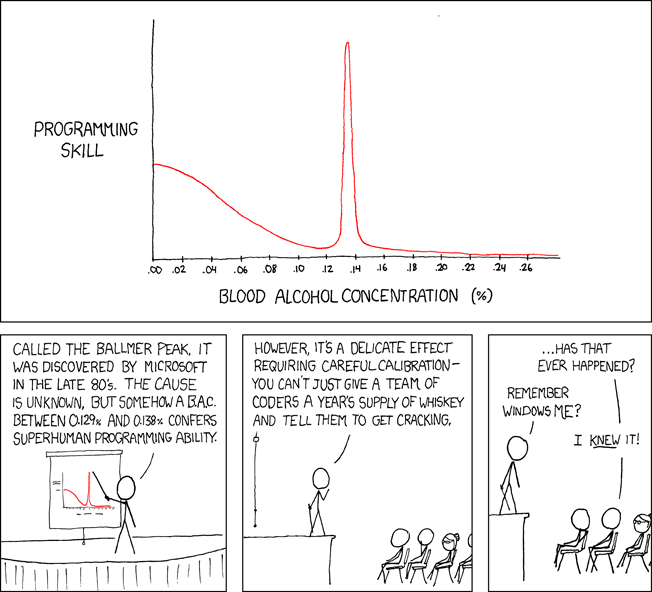That's the upcoming (next) version (generation) of Rakudo, which will form the basis for Rakudo *.
In essence, this is a refactoring/rewrite of Rakudo for the purpose of better compliance with the specification and performance improvements (yay). The old Rakudo master made it difficult — if not impossible — to implement several essential parts of the Perl 6 spec and top priorities on the Rakudo roadmap.
In January, this has led to less focus on the current Rakudo version's bugs and gotchas, and instead on working to prepare ng as the new master branch — that is, the Rakudo that you will be downloading the next time.
For those of us who do some Perl 6 coding in Rakudo, this means that we can expect a nice little bunch of incompatibilities as compared to the current master. And yes, it's very close, so it's time to prepare.
Here's a list of the blindingly obvious things I think we need to watch out for:
- Older Rakudo was not in line with parts of the spec that ng will be.
- The spec has changed. (ng development has uncovered several necessary changes.)
- Older Rakudo is in line with parts of the spec that ng perhaps isn't.
- Rakudo ng is, of course, not feature complete when it replaces older Rakudo as the master.
In other words: let's not fool ourselves into thinking that we all of a sudden have a new Rakudo that's both compatible with the older as well as being spec compliant.
The good news about Rakudo ng
If you judge by the above paragraphs, you'd think that Rakudo ng was bad for Perl 6 developers. But that's far off the mark. I prodded #perl6 and Patrick Michaud before publishing this post, and here's a brief summary of (most of) the improvements we can see coming with Rakudo ng as opposed to the current implementation.
- Most of the top priorities of the Rakudo roadmap will be implemented!
- Laziness will mostly work (the spec is undergoing change)
- Performance improvements, many due to laziness
- Array/List/Parcel/etc. will be compliant with the updated spec
- Protoregexes
- Better longest token matching
- Meta-operators are really meta, and generated on demand
- The base object metamodel is far closer to the spec than before
- Major portions of the metamodel are implemented in Perl 6
- Array and hash vivification will work properly
- Lexical subs and variables work properly
- Operators have the correct names (with angles)
- Subs have the correct sigils (with ampersands)
- Phasers work, and the phaser model is much improved
Our programs will need a bit of attention. I recommend subscribing to perl6-language for up-to-date information about changes to the specification and language discussions.
There's still a lot of work to be done, and I'm sure the Perl 6 developers are happy for any help they can get.



